Beautifying Baghdad: Colouring in a city of walls
- Published
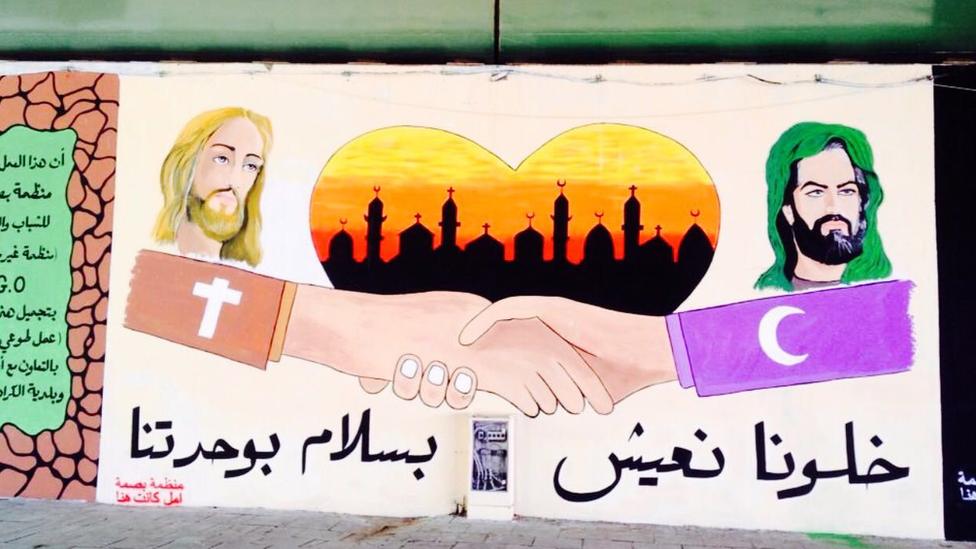
Mural on wall in Baghdad, with message which reads: "Let us live in peace in unity"
When Ali Abdulrahman was coming to the end of his time at university, he wanted to do something to brighten up his community in the Iraqi capital, Baghdad.
With the support of the dean, Ali got together with nearly 100 fellow students to paint graffiti along the walls of the campus.
Seeing how the grey concrete walls were transformed by colour, the students decided to go a step further. In January 2015, they took to the streets and painted graffiti along the main roads of the city, and so began Imprint of Hope, external.
Red, yellow, green, and blue replaced the drab facades of bombed-out houses. Colourful landscapes, images of children playing in the streets, and messages of co-existence started to appear across the city.
Rise of barriers
The war and its aftermath changed Baghdad dramatically. In 2007, following a spike in suicide attacks and other bombings, the government adopted new security measures to try to protect civilians.
Baghdad became increasingly divided into neighbourhoods, separated by brick walls. The once lively and energetic city started to lose its character and atmosphere.
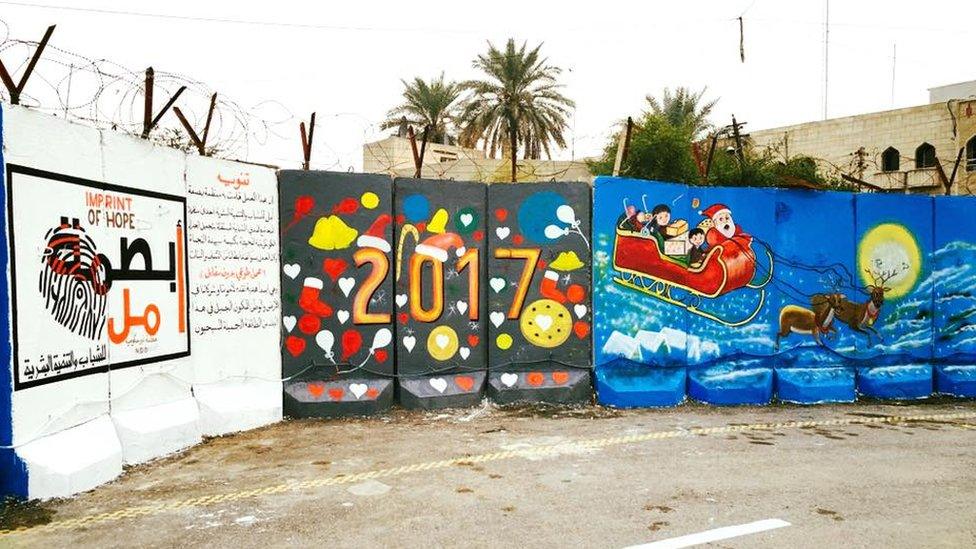
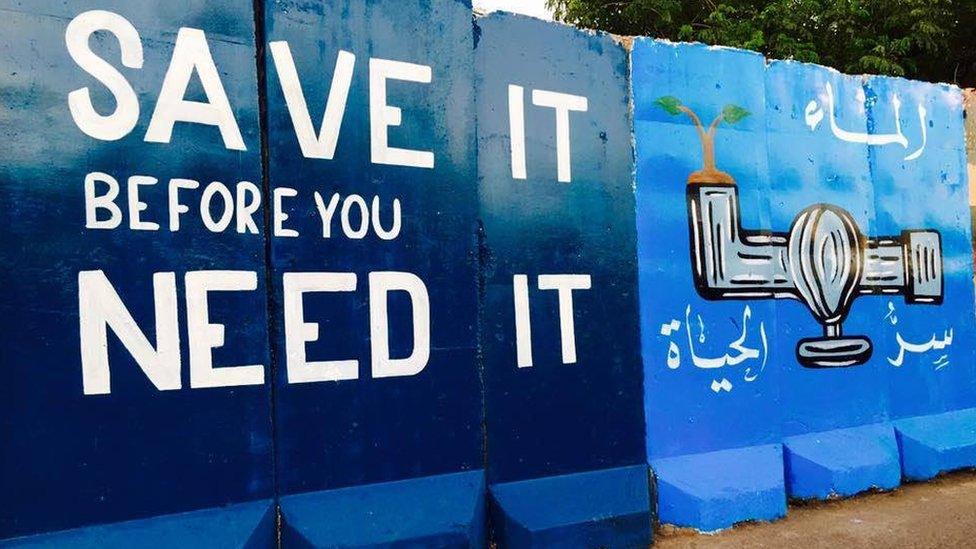
The walls did not only serve security purposes, but political and armed groups also used them as canvasses for sectarian slogans and political propaganda.
Locals complained that the city's litter was left along the walls, attracting rodents and creating a stench, particularly during the hot summer months.
Imprint of Hope sought to change this.
Messages of peace
Since it was founded, the group has painted hundreds of brick walls across Baghdad. It has swelled to more than 370 volunteers, external from a range of backgrounds, including students, carpenters, ironsmiths, artists and doctors.
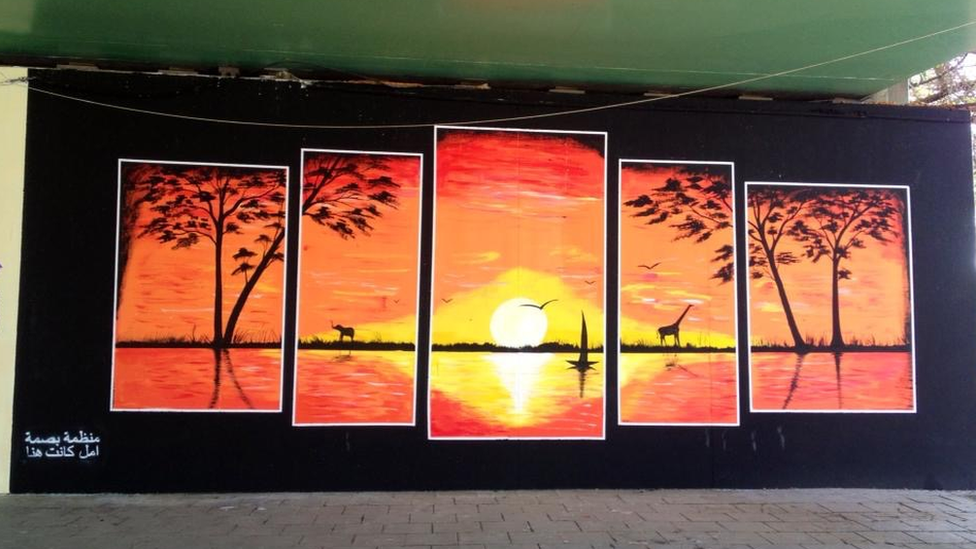
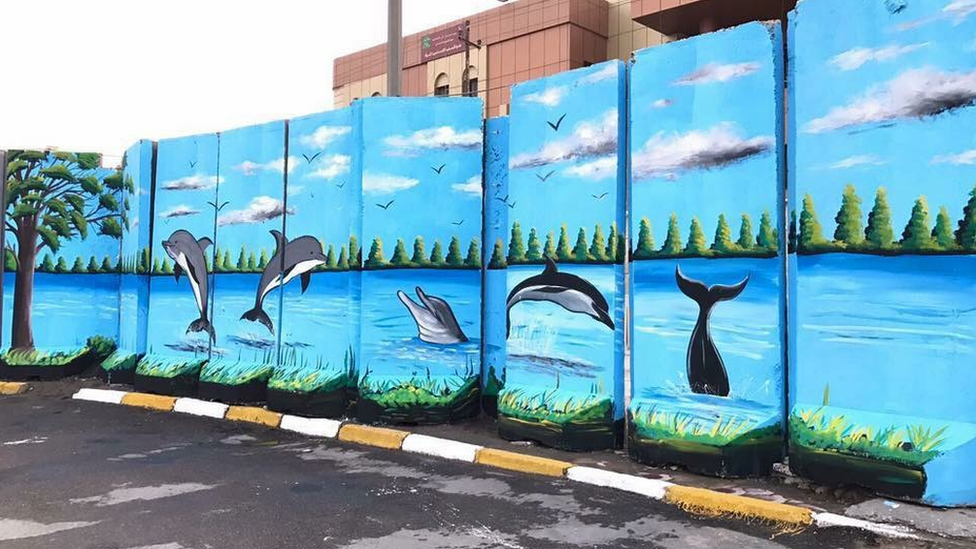
In addition to decorating the city's walls, the group also paints orphanages, nurseries and public buildings, including a children's cancer hospital.
Ali says its graffiti sends messages of peace and denounces sectarian violence. Sometimes, the murals are meant to raise awareness about issues such as water consumption, electricity usage, and the importance of community work.
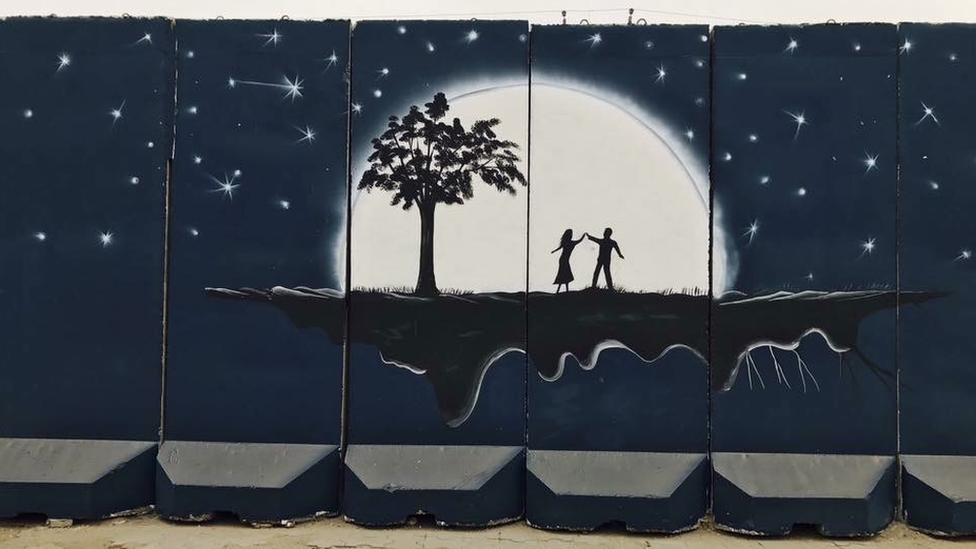
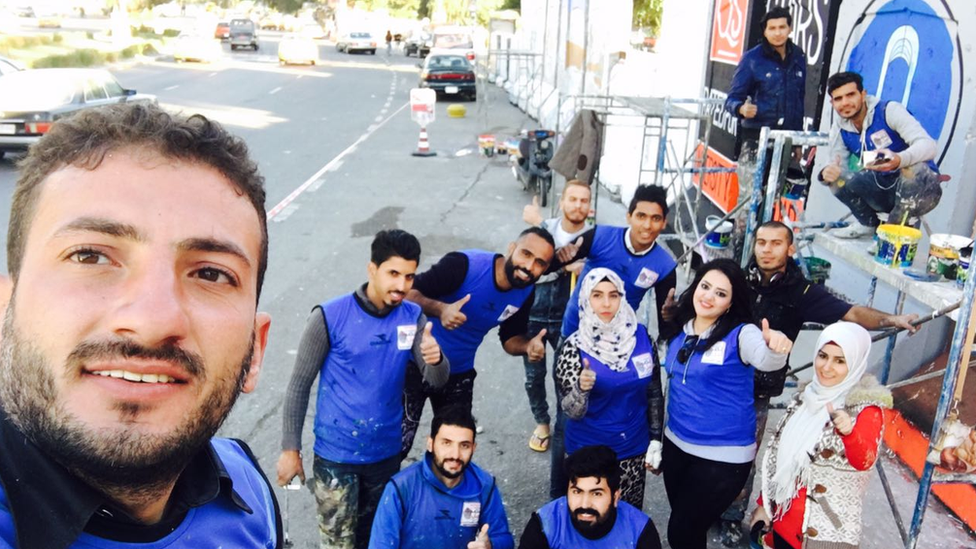
Last December around Christmas time, the group painted parts of Our Lady of Salvation Syrian Catholic Church, which was heavily damaged in explosions in 2010.
They also painted graffiti on the bricks that were later set up to protect the church from further attacks.
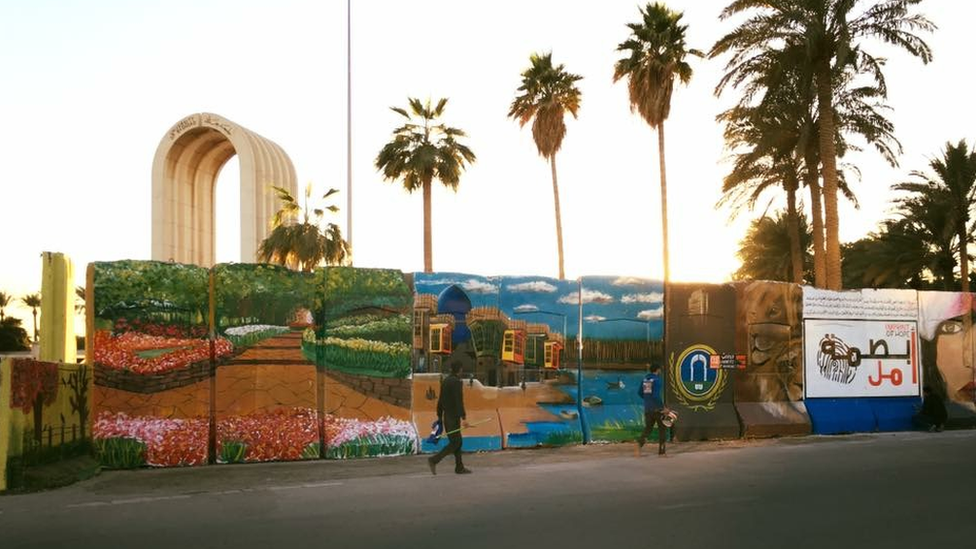
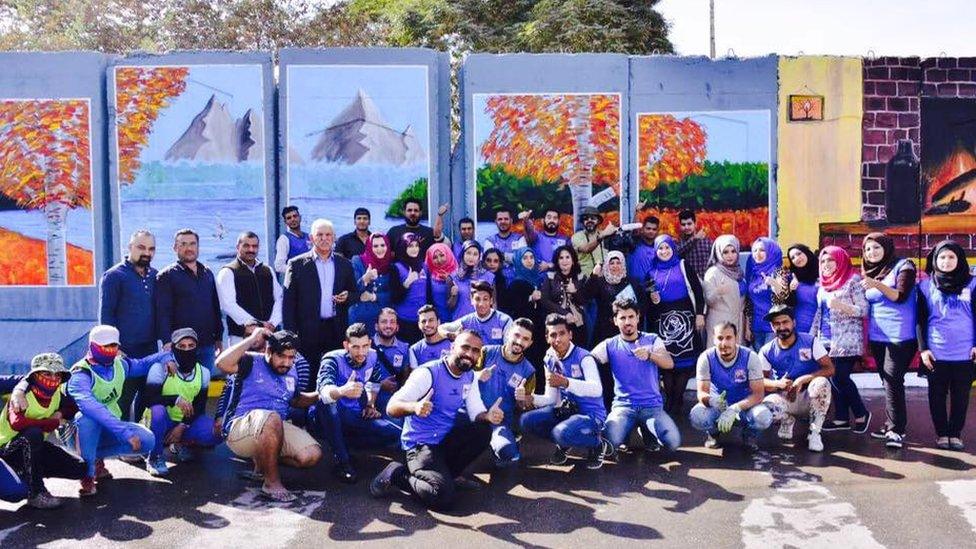
While making life in Baghdad more liveable is a priority, Ali also wants to change the perception people worldwide have of his city.
Cash crisis
At the moment, the group does not receive outside funding. Volunteers pay a monthly subscription of 10,000 Iraqi Diners ($8), which is used to buy the paint and brushes.
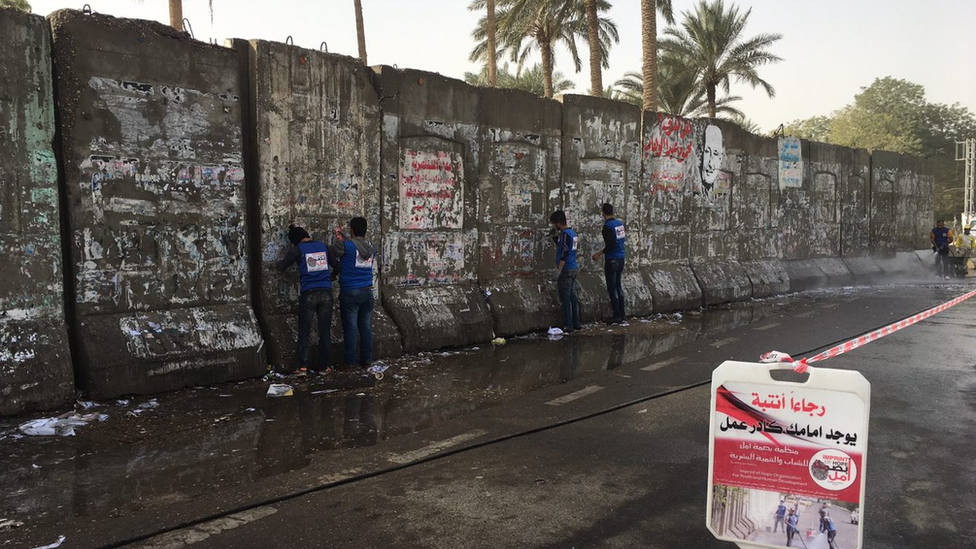
Similar to many civil society groups in Iraq, securing funding is a challenge. Sometimes, Imprint of Hope gets commissioned to produce artwork for private homes. The money they make is used to fund new projects.
Although the Iraqi government has promised to financially support civil society movements, so far the group has only received donations in the form of materials, from Unicef and the EU. This was used to paint murals and graffiti across 121 schools in Iraq.
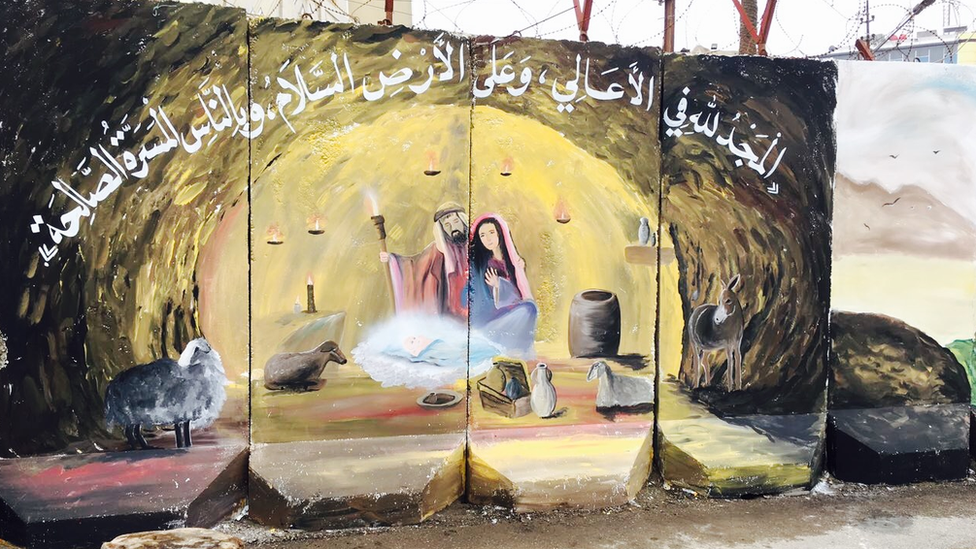
"Glory to God in the highest and on Earth peace, goodwill to all people"
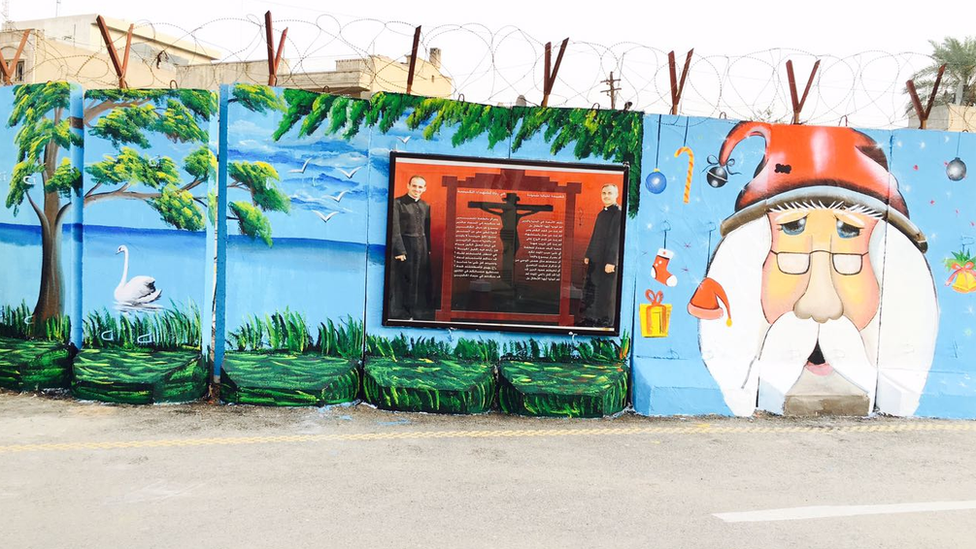
Initially, Ali and his friends faced pressure when some political parties tried to sabotage the group, suspecting a hidden political agenda.
"No-one wanted to fund us," says Ali. "They didn't understand what we do." Over time though, he says "with the positive reaction we received from the public, everyone is now trying to befriend us".
Ali is very proud of everyone who works for the group, though he feels that if his volunteers were living in another country in the Middle East, or in Europe, they would get more recognition and appreciation.
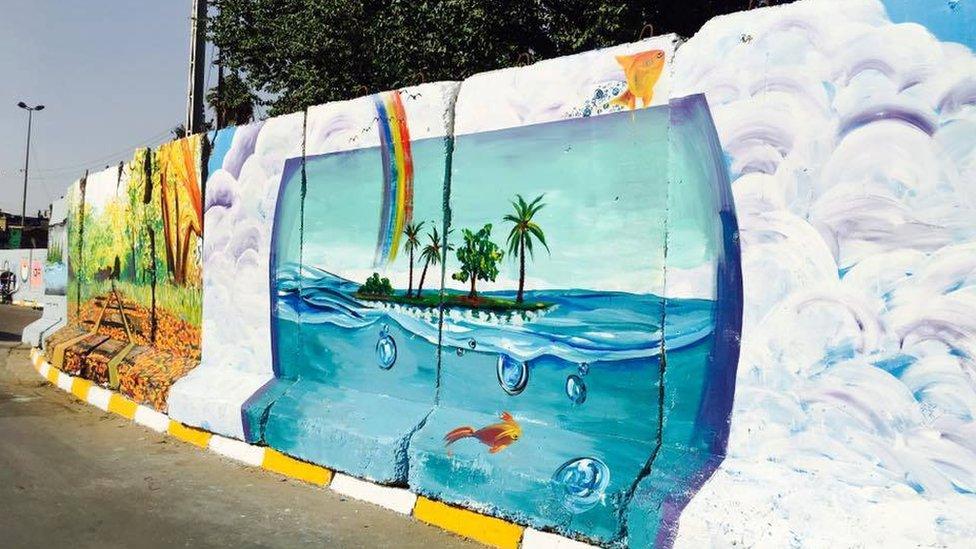
The group hopes to achieve other goals through its work.
Ali says that as well as with making Baghdad look prettier, the group would like to encourage people to become more active in society.
He says that through engaging in communal work, a greater feeling of citizenship could be fostered among Iraqis.
This would ease sectarian tension and potentially create a stronger sense of unity, he says.
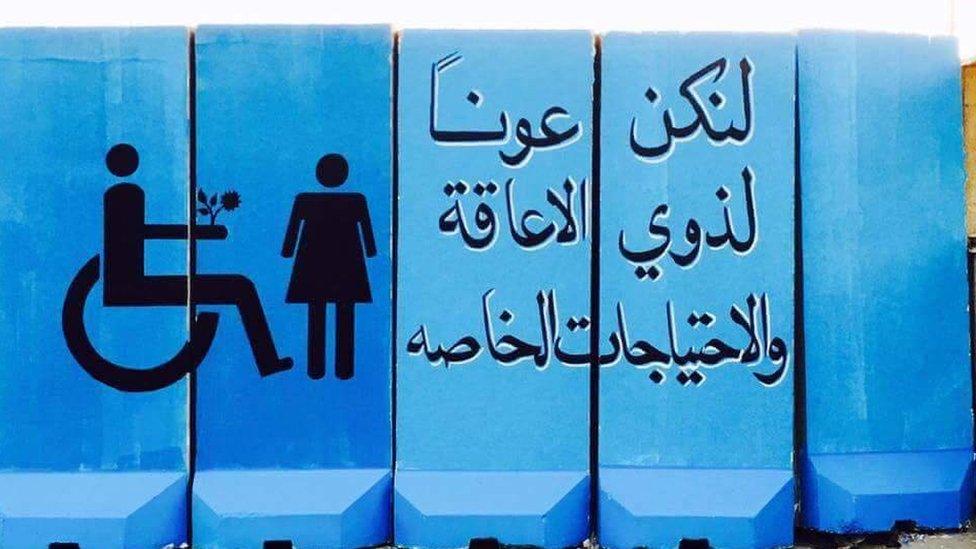
"Let's support the handicapped and those with special needs"
Despite the widespread feeling of despair and frustration among Iraq's younger population, Imprint of Hope feels it is succeeding in creating a more positive atmosphere - a small step on a long path.
Produced by UGC and Social News Team. All photographs courtesy Imprint of Hope.